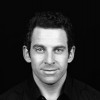 | Sam Harris |
We are free to interpret and reinterpret the meaning of our lives. You can consider your first marriage, which ended in divorce, to be a "failure," or you can view it as a circumstance that caused you to grow in ways that were crucial to your future happiness.
Every lie haunts our future. There is no telling when or how it might collide with reality, requiring further maintenance.
Lies beget other lies. Unlike statements of fact, which require no further work on our part, lies must be continually protected from collisions with reality. When you tell the truth, you have nothing to keep track of. The world itself becomes your memory, and if questions arise, you can always point others back to it.
Honest people are a refuge: You know they mean what they say; you know they will not say one thing to your face and another behind your back; you know they will tell you when they think you have failed - and for this reason their praise cannot be mistaken for mere flattery.
If determinism is true, the future is set - and this includes all our future states of mind and our subsequent behavior. And to the extent that the law of cause and effect is subject to indeterminism - quantum or otherwise - we can take no credit for what happens. There is no combination of these truths that seems compatible with the popular notion of free will.
Our sense of free will results from a failure to appreciate this: We do not know what we intend to do until the intention itself arises.
Just as one wouldn`t draw a lasting conclusion about oneself on the basis of a brief experience of indigestion, one needn`t do so on the basis of how one has thought or behaved for vast stretches of time in the past. A creative change of inputs to the system - learning new skills, forming new relationships, adopting new habits of attention - may radically transform one`s life.
We do not change ourselves, precisely - because we have only ourselves with which to do the changing - but we continually influence, and are influenced by, the world around us and the world within us.
Our interests in life are not always served by viewing people and things as collections of atoms - but this doesn`t negate the truth or utility of physics.
By merely glancing at your face or listening to your tone of voice, others are often more aware of your state of mind and motivations than you are.
Either our wills are determined by prior causes and we are not responsible for them, or they are the product of chance and we are not responsible for them.
Free will is an illusion. Our wills are simply not of our own making. Thoughts and intentions emerge from background causes of which we are unaware and over which we exert no conscious control. We do not have the freedom we think we have.
Lies are the social equivalent of toxic waste - everyone is potentially harmed by their spread.
The history of science is riddled with abject failures of scientific objectivity. But that is just the point-these have been failures of science, discovered and corrected by-what, religion? No, by good science.